Protecting Your Skin This Holiday Season: Your Complete Guide to Sun Safety
With holiday season here, whether you’re planning a Mediterranean getaway or enjoying a staycation at home, protecting your skin should be at the top of your packing list.
Many of us think about sun protection only when we’re jetting off to sunnier climes, but the truth is, UV rays can damage your skin even on cloudy days right here in Scotland.
Taking sensible precautions isn’t just about preventing sunburn – it’s about protecting your long-term skin health, slowing the signs of ageing, and reducing your risk of skin cancer. Your skin is with you for life, so it’s worth taking good care of it, wherever your travels take you.
Read our guide to sun safety – and if you need any help or advice, get in touch.
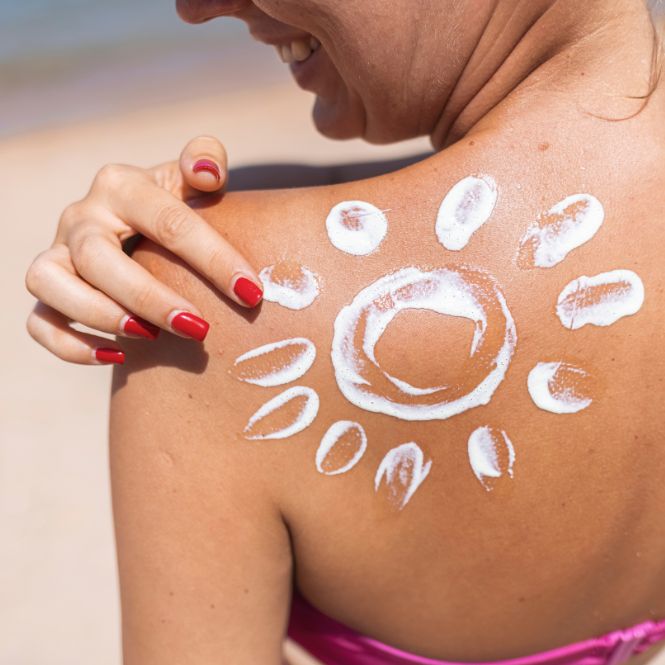
Understanding UV Radiation: More Than Just Sunny Days
One of the biggest misconceptions about sun protection is that you only need it when it’s blazing hot or when you’re abroad. UV radiation is present year-round, even on overcast days when up to 80% of UV rays can still penetrate cloud cover. Whether you’re on Loch Lomond or lounging on a Spanish beach, sun safety is important as your skin is being exposed to two types of harmful UV radiation:
- UVA rays penetrate deep into the skin and are primarily responsible for premature ageing, wrinkles, and age spots. These rays can pass through glass, so you’re exposed even when sitting by a window. (That’s why, if you drive, you might notice more sun damage on the right hand side of your face.)
- UVB rays are the ones that cause sunburn and play a key role in developing skin cancer. They’re strongest between 10am and 4pm, but can cause damage any time the sun is up.
This is why dermatologists recommend daily sun protection, regardless of the weather or your holiday destination.
Choosing (and Using) Sunscreen Properly
Not all sunscreens are created equal, and using them correctly makes all the difference. Here’s what you need to know:
Decoding SPF Ratings
SPF (Sun Protection Factor) measures how well a sunscreen protects against UVB rays. The numbers can be confusing, but here’s what they actually mean:
- SPF 15 blocks about 93% of UVB rays
- SPF 30 blocks about 97% of UVB rays
- SPF 50 blocks about 98% of UVB rays
For most people, SPF 30 provides excellent protection when applied correctly. Some prefer a little bit extra sun safety of a SPF 50 but it’s worth being aware that in some instances the additional ingredients could potentially irritate your skin.
But more important than the SPF number is choosing a broad-spectrum sunscreen that protects against both UVA and UVB rays. Look for products that contain zinc oxide, titanium dioxide, or newer chemical filters like avobenzone or mexoryl.
And if sunscreen tends to nip your eyes, you’ll find mineral SPFs won’t irritate quite as much.
How Much and How Often: The Golden Rules
This is where most people go wrong. You need more sunscreen than you think in order to get the protection on the packaging:
- Face and neck: About a teaspoon (the size of a £2 coin)
- Each arm: About a teaspoon
- Each leg: About two teaspoons
- Front of torso: About two teaspoons
- Back of torso: About two teaspoons
That’s roughly 6-8 teaspoons for your entire body – much more than most people use. Skimping on the amount can reduce protection by up to 50%.
Apply sunscreen 15-30 minutes before going outside to allow it to bind to your skin properly. Then reapply every two hours, or more frequently if you’re swimming, sweating, or towelling off. Even “waterproof” sunscreens need reapplication after swimming or excessive sweating.
Beyond Sunscreen: Your Complete Sun Safety Strategy
While sunscreen is crucial, it’s just one part of comprehensive sun protection. Think of it as your last line of defence, not your only one.
Smart Clothing Choices
Clothing is often your best protection against UV rays. Tightly woven fabrics provide better protection than loosely woven ones, and darker colours generally offer more protection than lighter ones. For extended outdoor activities, consider clothing with UPF (Ultraviolet Protection Factor) ratings.
Don’t forget your extremities – wide-brimmed hats protect your face, ears, and neck, while UV-protective clothing can shield areas that are easy to miss with sunscreen, like the tops of your feet or the back of your neck.
The Importance of Quality Eye Protection
Your eyes are just as vulnerable to UV damage as your skin. Prolonged exposure can contribute to cataracts, macular degeneration, and even cancers of the eyelid. Choose sunglasses that block 99-100% of both UVA and UVB rays. The label should specifically state “UV 400” or “100% UV protection.”
Wraparound styles provide the best protection by preventing UV rays from entering around the sides of the frames. But expensive doesn’t always mean better protection – some budget sunglasses offer excellent UV protection, while some designer pairs offer very little.
Seeking Shade Strategically
When possible, seek shade during peak UV hours (typically 10am to 4pm), but remember that you can still get burned in the shade. Sand, water, snow and concrete can also reflect UV rays, increasing your exposure. This is why you might notice getting sunburned under a beach umbrella or while skiing.
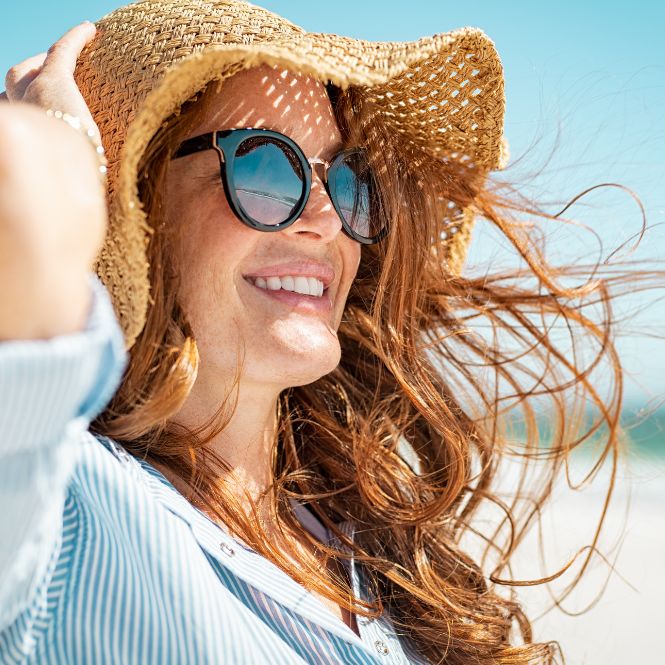
Monitoring Your Skin: Why Regular Checks Matter
Protection is important, but so is vigilance. Regular skin checks – both professional and self-examinations – are crucial for catching potential problems early.
What to Look For
Keep an eye on your moles and any new spots that appear on your skin. The ABCDE rule can help you identify changes that warrant professional attention:
- Asymmetry: One half of a mole doesn’t match the other
- Border: Edges are irregular, ragged, or blurred
- Colour: The colour varies throughout or has changed
- Diameter: Larger than 6mm (about the size of a pencil eraser)
- Evolving: Any mole that’s changing in size, shape, or colour
Don’t ignore new growths, persistent sores that won’t heal, or any spot that looks different from your other moles.
The Value of Professional Skin Health Checks
While self-examination is important, there’s no substitute for professional skin health checks. A trained eye can spot potential problems you might miss and provide peace of mind about changes you’re concerned about.
Regular professional skin checks are particularly important if you have:
- A family history of skin cancer
- Fair skin that burns easily
- Many moles or unusual moles
- A history of severe sunburns, especially in childhood
- A previous skin cancer diagnosis
At The Lomond Clinic, we understand the importance of comprehensive skin health. Our skincare and medical team can perform thorough skin examinations and, when necessary, provide treatment for various skin lesions using our ThermaVein and Cryotherapy technology, which offer a safe and effective solution for removing benign lesions, skin tags, and red veins.
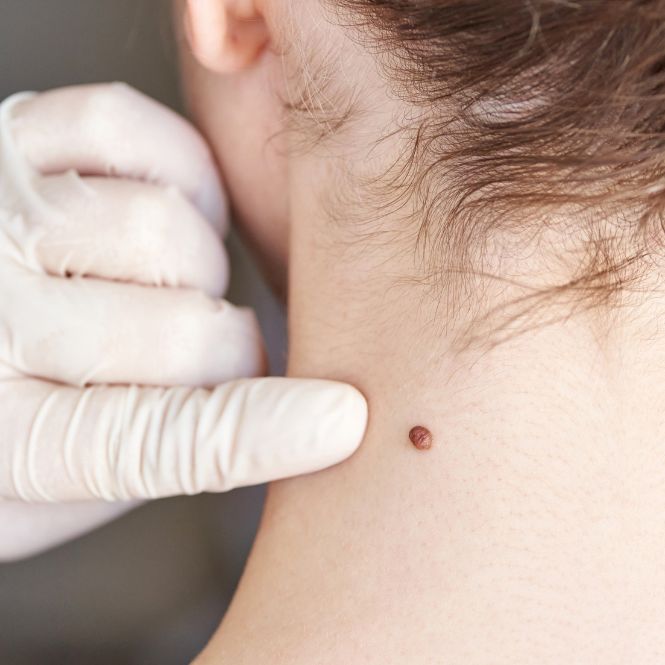
Special Considerations for Different Holiday Scenarios
Staycations and Scottish Summers
Don’t let Scotland’s reputation for weather fool you into skipping sun protection. UV radiation can be surprisingly strong here, especially during summer months and at higher altitudes like the Highlands. Water activities on lochs and coastal areas can increase your exposure due to reflection.
Scottish weather can be unpredictable, so you might find yourself spending more time outdoors than planned when the sun does appear. Make sun protection a daily habit rather than something you only think about on obviously sunny days.
Beach and Pool Holidays
If you’re heading somewhere sunny, the reflected UV rays from water and sand can increase your exposure significantly. You’ll also likely be wearing less clothing and spending more time outdoors than usual.
Start using sunscreen a few days before you travel to ensure your skin tolerates the product well. Pack more than you think you’ll need – sunscreen can be expensive at holiday destinations, and you want to ensure you’re applying enough.
Mountain and Ski Holidays
UV radiation increases with altitude – approximately 4% for every 300 metres above sea level. Snow can reflect up to 80% of UV rays, creating a double-exposure effect. This makes sunscreen essential even in winter mountain environments.
Don’t forget often-missed areas like under your chin and nose (which catch reflected rays), your lips (use a lip balm with SPF), and around your eyes where sunglasses don’t cover.
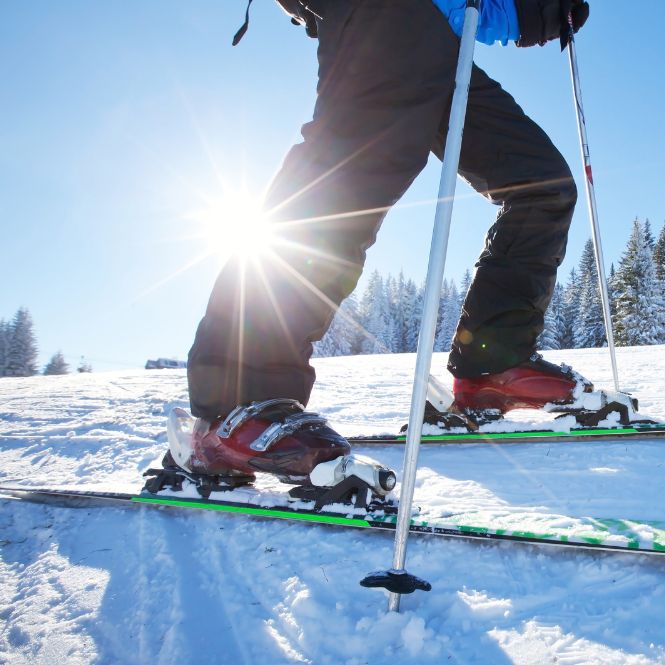
Your Skin Health
Taking care of your skin is an ongoing partnership between good daily habits and professional support when you need it. Along with proper sun protection, maintaining healthy skin involves using quality skincare products suited to your skin type and addressing any concerns promptly.
Our Eventis skin analysis system can help you understand exactly what your skin needs and create a personalised approach to skin health that goes beyond just sun protection. This advanced technology allows us to see beneath the surface of your skin to identify potential issues early and track improvements over time.
We also stock carefully selected sun protection products as part of our comprehensive skincare ranges, including professional-grade options from Environ and Cellderma that offer superior protection and skin benefits, as well as antioxidants like Vitamin A, C & E.
Making Sun Safety a Lifelong Habit
The key to good sun safety isn’t perfection – it’s consistency. Small, daily habits add up to significant protection over time:
- Apply sunscreen every morning, even if you’re just popping to the shops
- Keep sunscreen in your car, handbag, and desk drawer
- Reapply regularly, especially if you’re outdoors for extended periods
- Choose makeup and moisturisers with built-in SPF for daily wear
- Schedule regular skin checks, just like you would any other health appointment
Remember, sun damage is cumulative – it builds up over years of exposure. But the good news is that it’s largely preventable with the right approach to protection.If you have concerns about existing moles or skin changes, or if you’d like to establish a baseline for future skin health monitoring, we’re here to help. Our experienced team can provide comprehensive skin health checks and treatments, giving you the confidence to enjoy your holidays knowing your skin health is being properly looked after.
Your skin protects you every day – returning the favour with good sun safety habits is one of the best investments you can make in your long-term health and wellbeing.
Enjoy Your Holidays with Confidence
Sun protection shouldn’t limit your enjoyment of holiday time. With the right knowledge and habits, you can enjoy all your favourite outdoor activities while keeping your skin healthy for years to come.
If you have concerns about existing moles or skin changes, or if you’d like to establish a baseline for future skin health monitoring, we’re here to help. Our experienced team can provide comprehensive skin health checks and treatments, giving you the confidence to enjoy your holidays knowing your skin health is being properly looked after.
Your skin protects you every day – returning the favour with good sun safety habits is one of the best investments you can make in your long-term health and wellbeing.
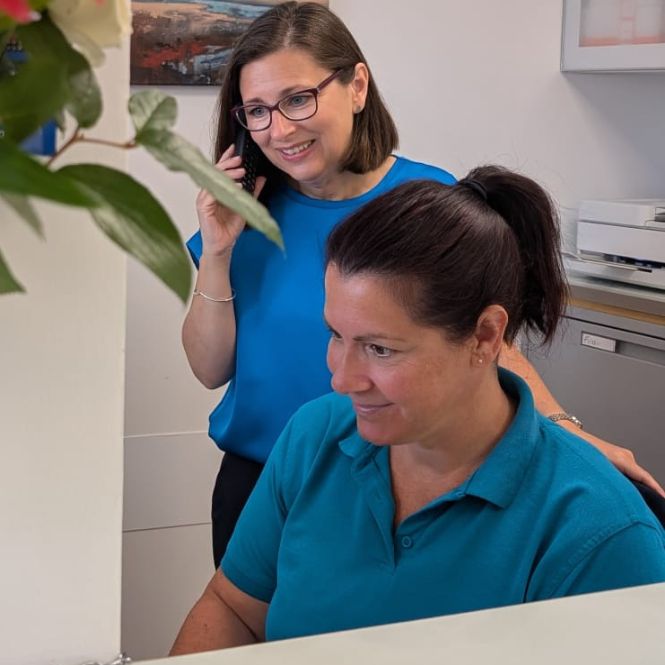
Make a skin health appointment
Whether you’ve something specific you want us to look at or treat, or just want a general skin check up, make an appointment with our skin specialist Jill or our medical team:
- Book your appointment online
- Call us on 01436 672677
- Or come in to see us at the clinic
If you don’t know what type of appointment tp chopose or woud like some advice, please feel free to ask – we’ll be happy to help.
Join our mailing list
We are a well-established multi-disciplinary health clinic on the seafront of Helensburgh. Join our mailing list to get all the latest news and updates directly to your inbox!
